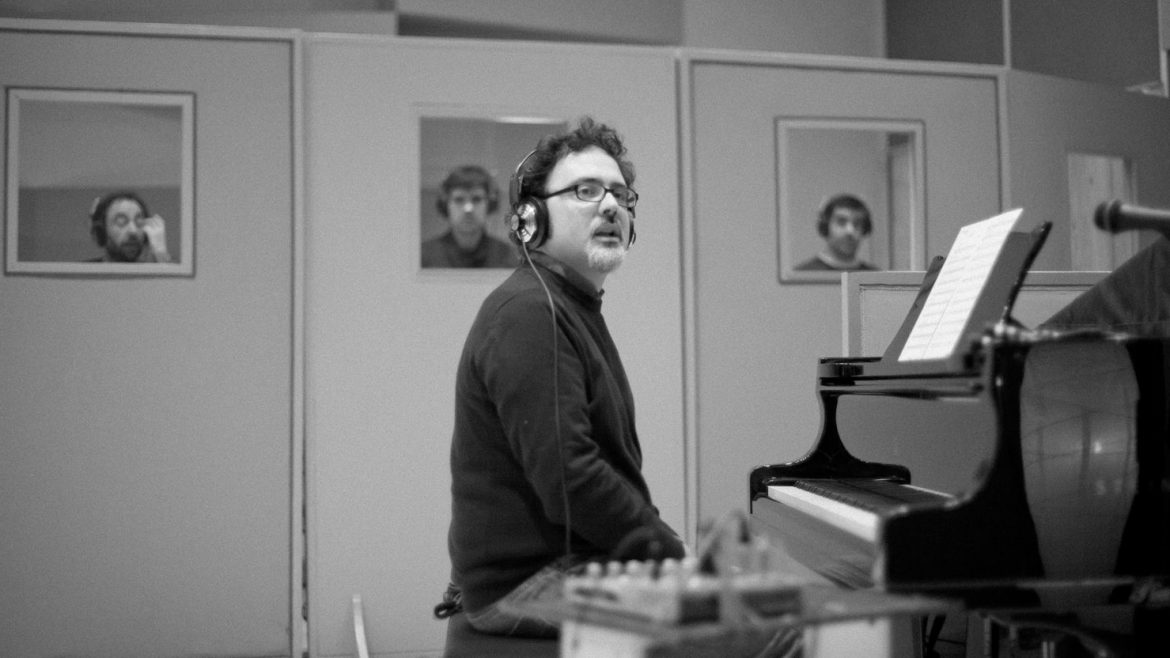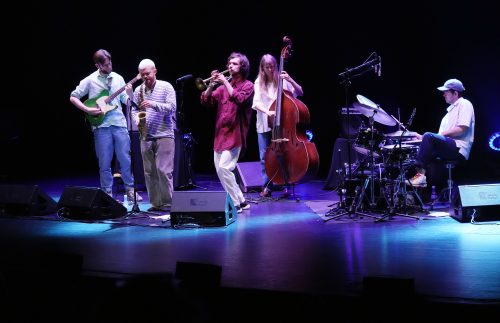
Hirukotetik Seikotera
Obra hau, era berean, arkitekturaren aurreko
zalantzarik gabeko bokazioaren erakusgarri da, kaosaren sakrifizio
zoriontsuaren erakusgarri, hura gorpuzten duten pieza biografikoen narraziozko
logika eta laburpenaren aldeko hautuaren erakusgarri. Jerónimo da musika bizi,
erromantiko eta gogoetazko honen eragile emozionala, hiriko egunsenti eta
ilunabarren, lanbro eta zaparraden eragile emozionala. Goi mailakoa da haren
poesia, eta bete egiten gaitu, baina sekula ere ez da handiustekoa.
Konponketek kolore orokorra lehenesten dute
xehetasunen aldean, baina aldi berean indar handiko marrazki txikiak eskaintzen
dituzte, Gonzalo Fernández de Larrinoa, Rubén Salvador edo Julen Izarrak
itxaropenez beteriko margoez inprobisatzen dituztenak esaterako. Haien ahotsak,
Hilario Rodeiro eta Javier Mayorren bulkada erritmikoa lagun, arnasa eta izaera
ematen baitiete, harmoniatsuki desordenatzen dira, Mingus zaurgarrienaren
diskoetan eta talde handietako Charlie Hedenen lanetan bezalatsu.
Jerónimo Martínek ez du beretzat
protagonismorik nahi, haren pianoak funtsezko zirriborroa mugatu besterik ez du
egiten, ingurua azaletik deskribatzen duen edo paisaia barnerakoienak lehenengo
pertsonan aletzen dituen off-eko ahotsa balitz bezala.
Diskoan aurrera egin ahala ziurtasunak
nagusitu egiten zaizkie zalantzei, folkloretik
(Tívoli) edaten duen, estetika
klasiko baten oinarritzen den eta agian jazz bera ere ez den –ez bederen
afroamerikar batek ulertuko lukeen moduan– paisaia multzo guztiz koherentea
osatu arte. Musika honen mamia ez da berariazko swinga, ez eta elkarrekintza
ere. Estilo ia erabat sinfonikoaz adierazitako istorio baten bidez entzuleari
laguntzea du xede nagusi, itxurakeriak bazter utzi eta sentimenduaren gainetik
zentzua nagusituz, baina berezko dituen emozioei muzin egin gabe: itxaropena (Claridad), norberarenganako errukia (5 de Mayo), izaera askea (Obertura) edo bizidun izatearen jakitun
izateak dakarren zoriontasuna (Tutto per amore).







